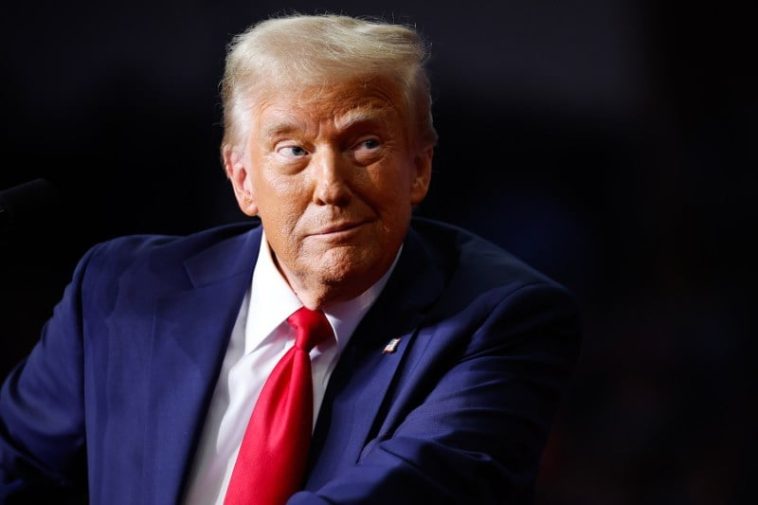President-elect Donald Trump’s transition team is reportedly gathering information on U.S. military officers involved in the 2021 Afghanistan withdrawal, as part of an effort to hold individuals accountable for the chaotic and controversial operation. The move signals Trump’s intent to revisit one of the most criticized foreign policy events in recent history, with discussions underway about forming a commission to investigate the planning, execution, and aftermath of the withdrawal.
A Push for Accountability
The decision to compile a list of officers involved reflects Trump’s long-standing criticism of the Afghanistan withdrawal, which he has repeatedly described as a “disaster” and “the most embarrassing, incompetent, and humiliating event in the history of the United States.” The operation, which led to the rapid collapse of the Afghan government and the hasty evacuation of U.S. personnel, has been widely condemned for its lack of preparedness and the tragic loss of 13 American service members during the final days.
Trump’s transition team is reportedly focusing on identifying senior military leaders and officers who played key roles in the withdrawal process. The goal is to gather detailed information on their involvement, decisions, and any actions that may have contributed to the disorderly exit from Afghanistan. The team believes that holding these officials accountable is crucial for restoring public trust and ensuring that similar operational failures do not occur in the future.
Potential Formation of a Commission
The Trump team is considering the establishment of a special commission to investigate the Afghanistan withdrawal. This commission would be tasked with examining the decision-making processes behind the operation, as well as the actions taken by military leaders during the evacuation. Trump’s advisors are reportedly weighing the possibility of pursuing serious charges against those deemed responsible, including potential accusations of dereliction of duty or even treason.
The proposed commission would aim to conduct a comprehensive review of the events leading up to the withdrawal, including the intelligence assessments, strategic planning, and execution of the evacuation plan. It would also focus on the failures that led to the chaotic scenes at Kabul’s Hamid Karzai International Airport, where desperate Afghans clung to departing aircraft and American troops struggled to maintain order amid a surge of civilians attempting to flee the country.
Revisiting a Controversial Operation
The chaotic withdrawal from Afghanistan remains a contentious topic in U.S. politics, with many critics pointing to it as a low point in American military history. The rapid collapse of the Afghan government and the hasty evacuation have been seen as a significant blow to U.S. credibility, both domestically and abroad. Trump has been vocal in blaming the Biden administration and military leadership for what he describes as a catastrophic failure, pledging to investigate the matter thoroughly upon taking office.
Trump’s focus on the Afghanistan withdrawal is likely to resonate with his base, who have viewed the operation as a clear example of incompetence and poor planning. The transition team’s actions suggest that the incoming administration intends to prioritize a reassessment of military leadership and hold those responsible accountable for their roles in the operation.
Gathering Evidence and Information
The transition team is reportedly gathering extensive documentation and evidence related to the withdrawal, including internal reports, communications, and testimony from those directly involved. This effort aims to build a case that could lead to formal investigations and possibly legal actions against individuals deemed negligent in their duties. Trump’s team is said to be coordinating with Republican lawmakers who have expressed interest in revisiting the circumstances surrounding the withdrawal and examining the decisions made by senior military officials.
The process of compiling a list of officers involved is expected to involve a thorough review of military records and statements. The team is seeking to identify individuals who had significant influence over the planning and execution phases, with an eye toward understanding the chain of command and the decisions that led to the disorganized exit.
A Signal of Trump’s Foreign Policy Priorities
Trump’s decision to pursue this investigation highlights his commitment to reevaluating U.S. foreign policy and military strategy. The move suggests that the incoming administration may adopt a more aggressive stance on holding military leaders accountable for operational failures. By focusing on the Afghanistan withdrawal, Trump appears intent on sending a message that poor leadership and decision-making will not be tolerated.
The proposed commission could also have broader implications for how future military operations are conducted, potentially leading to changes in the oversight and accountability of senior officers. Trump’s willingness to revisit the issue underscores his determination to correct what he sees as a major failure of the previous administration.
Looking Ahead
As the transition process continues, the Trump team’s efforts to compile a list of military officers involved in the Afghanistan withdrawal are likely to draw significant attention. If the commission moves forward, it could lead to a comprehensive investigation with far-reaching consequences for the individuals involved and for the military as a whole.
For now, the initiative reflects Trump’s broader agenda of challenging the status quo and addressing what he perceives as deep-rooted issues within the U.S. military leadership. The focus on accountability and transparency may become a key theme of Trump’s approach to foreign policy and defense as he prepares to take office once again.


